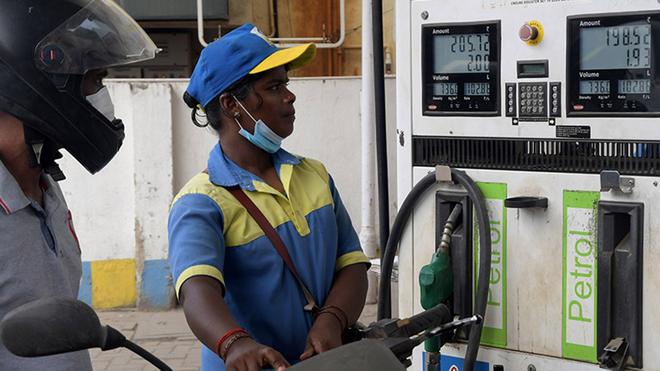Madras HC to hear PIL plea to bring petrol and diesel prices under GST
A petition has been submitted seeking the inclusion of petrol and diesel under the GST regime.The case is set for hearing today, September 11, 2024, before Acting Chief Justice D. Krishnakumar and Justice P.B. Balaji.

Image credit:- thehindu
A public interest litigation (PIL) has been filed in the Madras High Court, urging the Indian government to bring petrol and diesel under the Goods and Services Tax (GST) framework. The petition aims to establish uniform pricing for these essential commodities across the country, addressing the current disparities caused by varying state taxes.
Chennai-based advocate C. Kanagaraj submitted the PIL, which emphasizes the need for reduced fuel prices and equitable pricing nationwide. The petition is scheduled for hearing today, September 11, 2024, before the first Division Bench, comprising Acting Chief Justice D. Krishnakumar and Justice P.B. Balaji.
The argument presented in the PIL highlights that the absence of a uniform tax structure for petrol and diesel leads to significant price variations across states, which adversely affects consumers. The petitioner contends that such discrepancies violate the principles of equality enshrined in Articles 14 and 21 of the Indian Constitution, which guarantee the right to equality and the right to life, respectively.
This legal move reflects a growing concern among citizens regarding the rising fuel prices and their impact on the cost of living. Advocates for the inclusion of petroleum products in the GST regime argue that it would not only stabilize prices but also simplify the tax structure, making it more transparent and equitable.
The backdrop of this PIL is a series of previous attempts and discussions regarding the taxation of petroleum products under GST. While the central government has expressed intentions to include these fuels in the GST framework, the final decision rests with the states, which have been hesitant due to revenue implications.
As the hearing unfolds, the outcome could have significant implications for fuel pricing and taxation policies in India, potentially leading to a more harmonized and consumer-friendly approach to fuel taxation across the nation.



